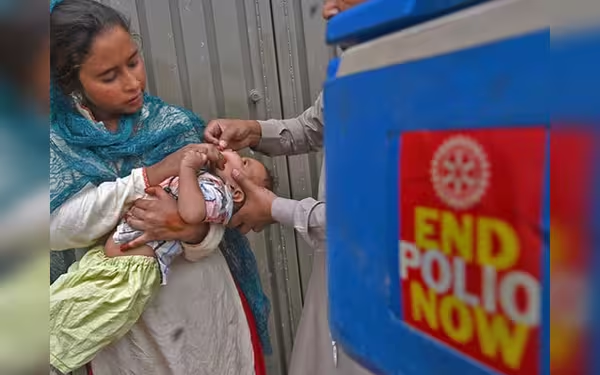Thursday, November 7, 2024 01:03 PM
Polio Case Reported in Killa Saifullah, Balochistan
- New polio case raises alarm in Killa Saifullah.
- Total polio cases in Balochistan reach 23.
- Vaccination efforts continue despite challenges.
 Image Credits: tribune.com.pk
Image Credits: tribune.com.pkA new polio case in Killa Saifullah highlights ongoing vaccination challenges in Pakistan, with 46 cases reported nationwide in 2024.
Polio, a highly infectious viral disease that primarily affects children, has once again raised alarm bells in Pakistan. The country has been battling this disease for decades, and despite numerous vaccination campaigns, it continues to pose a significant threat to public health. Recently, a new case of polio was reported in Killa Saifullah, a district in Balochistan. This unfortunate development has brought the total number of polio cases in the province to 23, contributing to a nationwide count of 46 cases for the year 2024.
The emergence of this new case highlights the ongoing challenges faced by health authorities in eradicating polio. Health workers are tirelessly working to administer polio vaccine drops to children, especially during door-to-door vaccination campaigns. These efforts are crucial, as the vaccine is the most effective way to prevent the disease. However, despite these initiatives, some areas remain resistant to vaccination due to various factors, including misinformation and cultural beliefs.
It is essential for communities to understand the importance of vaccination in protecting their children from polio. The disease can lead to paralysis and, in severe cases, can be fatal. Parents must be encouraged to allow their children to receive the vaccine, as it is safe and effective. The government and health organizations are making concerted efforts to educate the public about the benefits of vaccination and to dispel any myths surrounding it.
As we reflect on the current situation, it is clear that the fight against polio is far from over. The recent case in Killa Saifullah serves as a reminder that vigilance is necessary. Continued support for vaccination campaigns and community engagement is vital to ensure that every child is protected. Together, we can work towards a polio-free future for Pakistan, safeguarding the health and well-being of our children.













